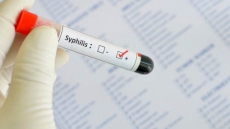In a process to lose weight early, one size approach may not fit everybody, as a study has found that selecting a right diet based on person's blood sugar and fasting insulin levels is important to achieve six to seven-fold greater weight loss.
Fasting blood sugar is a test performed after a person has fasted for at least eight hours.
The research shows that weight loss strategies should be customised based on an individual's biomarkers - a naturally occurring molecule, gene - which is a big step forward in using personalised nutrition to help people achieve greater weight loss success.
These biomarkers were repeatedly proven as predictors of weight loss and maintenance success.
The specific diets that will work differ based on whether a patient has normal blood sugar, has prediabetes or is living with diabetes.
Arne Astrup from the University of Copenhagen, Denmark said that for many patients, use of these biomarkers can lead to a six to seven-fold greater weight loss.
Astrup added that researchers can educate patients when a diet they planned to follow would actually make them gain weight, and redirect them to a strategy that works for them.

The studies demonstrate that, for successful weight loss, fasting blood sugar and fasting insulin should be used to select an approach that is proven to work based on those biomarkers.
For most people with prediabetes, a fiber-rich diet without calorie restriction will be very effective and has been shown to improve diabetes markers.
In this population, carbohydrates or fats should be adjusted based on fasting insulin levels.
For people with type 2 diabetes, a diet rich in healthy, plant-based fats (such as from olive oil, nuts and avocados) will be effective to achieve weight loss.
The researchers acknowledge that no one solution works for every patient.
The University of Copenhagen will continue to participate in and support research to explore additional biomarkers such as gut microbiota and genomics approaches, which may offer more insights and help to better predict success with specific diets.
The data were presented at the American Diabetes Association 77th Scientific Sessions.





